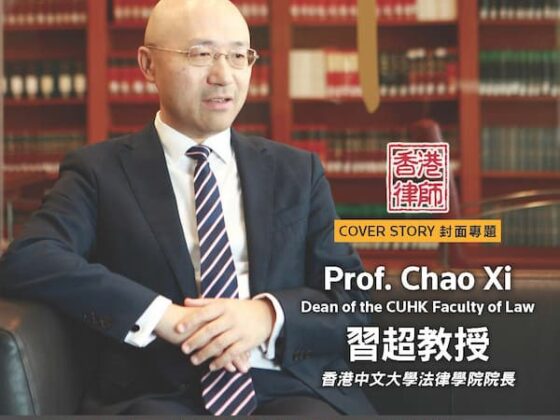Essential Considerations on Testamentary Challenges in Hong Kong
Inheritance disputes represent some of the most emotionally charged and legally complex cases in Hong Kong’s judicial system. When a loved one passes away, the discovery that their Will does not reflect perceived intentions or appears suspicious can lead to protracted legal battles that fracture families and deplete estates.
Hong Kong’s legal framework provides several avenues to contest a Will, each with distinct procedural requirements and evidential thresholds. The process demands careful navigation of Probate Law, where timing is often as critical as the substantive arguments. A challenger must act decisively while balancing legal strategy against the emotional toll such disputes inevitably exact.
Will challenges in Hong Kong present intricate legal and human challenges. The adversarial process often exacerbates family fractures, even when resolving the legal issues. Successful navigation requires not only technical legal expertise but sensitivity to the emotional undercurrents that permeate such disputes.
For potential challengers, early legal advice is critical to assess merits and strategize approaches. For testators, careful estate planning with professional guidance remains the best defense against future disputes. Ultimately, the law seeks to honour genuine testamentary wishes while protecting against abuse – a balance requiring constant judicial vigilance and practitioner skill.
Q1. What legal grounds exist in Hong Kong to challenge a Will’s validity?
In Hong Kong, the legal framework for contesting Wills operates through three principal avenues.
First, formal validity challenges arise under Section 5 of the Wills Ordinance (Cap 30) which sets out a prescribed list of required execution formalities.
Second, testamentary capacity disputes are governed by the common law test established in Banks v Goodfellow, requiring proof of the testator’s cognitive understanding at the time of execution.
Third, a will can be challenge concerning the testator’s knowledge and approval of the will and its contents, including issues of undue influence over testator’s free will. Successful claims typically present documentary evidence such as medical records, witness testimony regarding the will preparation and execution process, and forensic analysis where forgery is alleged.
Q2. How strictly do Hong Kong courts enforce will execution formalities?
Hong Kong courts maintain an exacting standard when assessing compliance with execution requirements, given the clear requirements in the Wills Ordinance.
There exists an exception to section 5 of the Wills Ordinance that allows a Court to admit a Will to probate notwithstanding that formalities have not been complied with, but only if the Executor can prove that the document represents and embodies the testator’s testamentary intentions; the Executor has to prove this beyond reasonable doubt, which is a much higher standard of proof than in usual civil cases, which only requires proving on a balance of probabilities.
Q3. What evidence proves testamentary capacity in contentious cases?
Establishing testamentary capacity requires comprehensive medical and circumstantial evidence. Contemporaneous medical assessments conducted proximate to the execution date carry particular weight, as they provide direct insight into the testator’s cognitive state; the most common of these are the Mini-Mental State Examination (MMSE) and Montreal Cognitive Assessment (MoCA). That said, the Courts appreciate that contemporaneous assessments are not always available, and it is common for retrospective evaluations to be made even if they might not carry the same weight. In practice, we seek to assemble a robust evidential record including medical records, notes, memos and recordings of testamentary discussions, and documentation of the testator’s comprehension during the execution ceremony. For elderly or medically compromised testators, we strongly recommend obtaining specialist geriatric or psychiatric assessments contemporaneous with the will signing; this is known as the Golden Rule, stemming from the case of Kenward v Adams.
Q4. What are examples of challenging a testator’s knowledge and approval of his/her Will?
Knowledge and approval essentially mean that the testator knows the contents and effect of his/her Will, and approves the will in that he/she accepts it represents his/her testamentary intentions once executed.
There is a rebuttable presumption that if a Will complies with the relevant formalities and is read and explained to the testator, then there is knowledge and approval of the contents of the Will. However, there are a number of what are called “suspicious circumstances” that can rebut this presumption.
The most obvious example is where the testator is not fluent or literate in the language in which the Will is written; this can usually be remedied by reading and explaining the contents and effect of the will to the testator orally. The recent Lim Por Yen judgment is one example where a complex Will was not properly or adequately read and explained to the testator.
Another situation that is sometimes seen is where a major beneficiary takes charge of the arrangements for making and signing the Will. One can see the beneficiary’s vested interest in having the will executed and proved, thus the Courts become naturally suspicious of these circumstances. The case of Hawes v Burgess represents one such instance where the will was found to be invalid on such basis. This type of situation is worth emphasising because it is common for friends and family of an elderly or sickly testator to handle various aspects of the Will-making process on the testator’s behalf, from being the point of communication with solicitors, to giving information and instructions for the Will, as well as arranging and attending meetings to discuss and sign the Will.
Q5. How do you establish undue influence in Hong Kong probate cases?
Undue influence claims require demonstration of a causative link between improper pressure and the testamentary dispositions. Unlike contractual undue influence, these claims do not necessitate a pre-existing relationship of trust. The test is that there is coercion, and not just mere persuasion, to the extent as to overcome the testator’s free will. In the old English case of Wingrove v Wingrove an analogy provided by the Court was that if given the chance to speak his mind, the testator would say “this is not my wish, but I must do it”. Successful arguments typically present evidence of the testator’s progressive isolation from natural beneficiaries, abrupt changes to longstanding estate plans, and the absence of independent legal advice during the will preparation process.
Q6. What procedural missteps commonly undermine Will challenges?
Several procedural pitfalls frequently compromise otherwise meritorious claims. Delay in filing the initial Caveat against the estate represents perhaps the most common error, as it may permit issuance of the Grant of Probate or Administration, and thus partial estate distribution, before the challenge commences.
Additionally, failure to secure testamentary documents, whether originals or copies, before litigation commences may significantly weaken a challenger’s ability to properly assess the merits of their potential claim.
Specifically for dependants’ claims under the Inheritance (Provision for Family and Dependents) Ordinance (Cap. 481), there is a 6-month limitation period starting from the date when the Grant of Probate or Administration is issued, after which a claim can only be made by justifying the delay with the Court. This is a much shorter limitation period than for say contractual claims, so it can easily get overlooked.
Q7. Has privileged document handling evolved in recent probate disputes?
When a Will is being challenged, the files and records of the will-drafting solicitors often become key pieces of evidence. Because these documents typically contain confidential information about the testator, they are normally protected from disclosure by legal professional privilege notwithstanding that their relevance to the issues in dispute, and the recent judgment in Angela Chen v Wai Wai Chen & Anor reaffirms this. Privilege can only be waived by the testator’s successors in title, in other words their executor or administrator.
An exception exists, known as the rule in Re Fuld (No. 2), that the Court can ask for privileged information to be disclosed to the extent that it concerns the attestation and execution of the Will in question. However, one can see that this is a narrow exception, and does not defeat the general position regarding privileged information.
Q8. When should clients consider family provision claims instead of validity challenges?
Family provision claims under Cap. 481 offer a viable alternative when either:
- the Will appears to be valid but produces inequitable outcomes for the claimant, or
- the deceased is intestate and that in itself produces an inequitable outcome.
In practice, we often recommend this approach where the evidentiary foundation for a validity challenge appears weak, but the claimant demonstrates clear financial need and a reasonable expectation of provision. The courts exercise broad discretion in these matters, considering factors such as the applicant’s resources, the estate’s composition, and any contributions to the deceased’s welfare.
While the Ordinance provides that any person who was a recent dependent of the Deceased can make a claim, it should be noted that a special status is afforded to a surviving spouse or concubine, where they are not required prove that financial provision from the estate is necessary to meet their needs.
Q9. What preventative measures do you mandate for high-risk estate plans?
For estates with significant assets or complex family dynamics, we suggest implementing a comprehensive preventive protocol. This includes obtaining dual medical capacity assessments from different specialists to create a robust evidentiary record. Video recording of the execution ceremony serves both to document proper formalities and to capture the testator’s demeanour and understanding. Where assets are spread across multiple jurisdictions, advisors from each jurisdiction should be on board to ensure consistency and alignment with the overall estate planning strategy. These measures have proven highly effective in preventing litigation while ensuring the testator’s intentions are properly documented and executed.
The Hong Kong probate jurisdiction presents a rigorous but navigable framework for Will challenges. Success requires prompt action, meticulous evidence gathering, and strategic selection of legal arguments. While the courts maintain exacting standards, proper case preparation and expert guidance can effectively address questionable testamentary instruments while respecting valid final wishes. Practitioners must remain cognizant of both the substantive legal developments and procedural innovations that continue to shape this complex area of practice.
For information purposes only. Its contents do not constitute legal advice and readers should not regard this as a substitute for detailed advice in individual instances.





